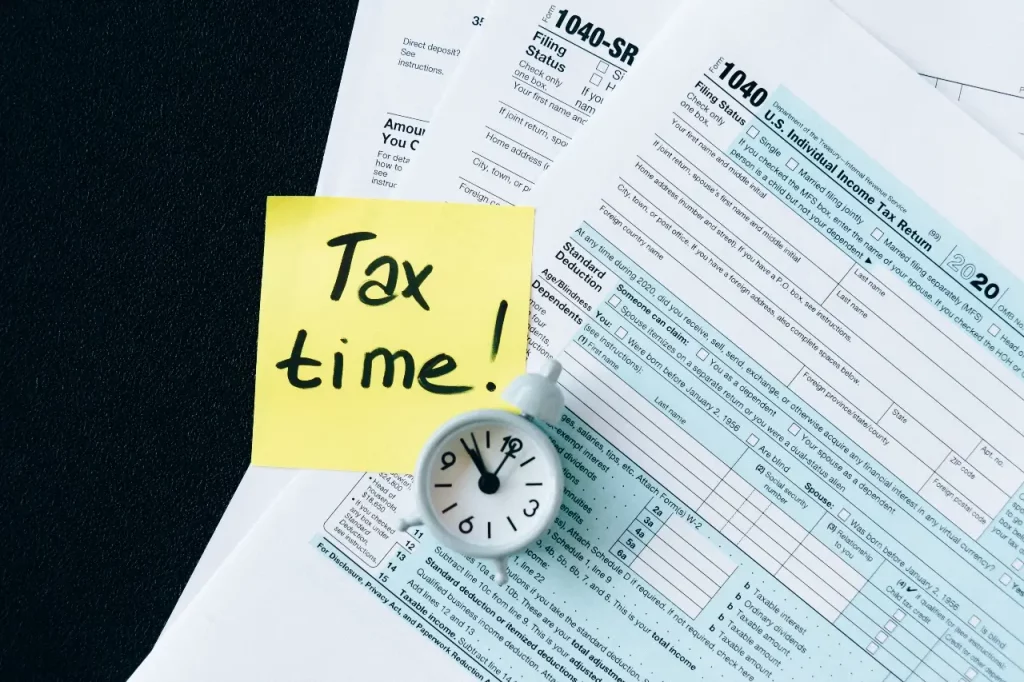Paying taxes is an important civic duty and obligation for every citizen and business entity in Nigeria. It is the responsibility of every individual and organization to pay taxes to the government according to the provisions of the relevant tax laws.
However, the process of paying tax in Nigeria can be overwhelming and confusing for many people, especially those who are new to the system. In this guide, we will provide you with all the necessary information you need to know about how to pay tax in Nigeria.
Table of Contents
Why You Need to Pay Tax in Nigeria
Before delving into the details of how to pay tax in Nigeria, it is essential to understand why paying taxes is crucial. Taxes are the main source of revenue for the government, and they are used to finance various public services and infrastructure, such as roads, schools, hospitals, and security. Paying taxes is not only a legal obligation but also a moral responsibility to contribute to the development and progress of the country. Failure to pay taxes can lead to severe consequences, such as fines, penalties, and legal actions.
Types of Taxes in Nigeria
There are different types of taxes in Nigeria, and it is essential to know which ones apply to you or your business. The main types of taxes in Nigeria are:
Personal Income Tax
Personal income tax is a tax levied on the income of individuals, including employees, self-employed persons, and business owners. The tax is payable on the total income earned during a fiscal year (1st January to 31st December). The rate of personal income tax in Nigeria varies depending on the income level and is progressive, meaning that higher earners pay a higher percentage of their income as tax.
Corporate Income Tax
Corporate income tax is a tax levied on the profits of companies and other business entities registered in Nigeria. The tax is payable on the total profits earned during a fiscal year. The rate of corporate income tax in Nigeria is 30%, although small companies with an annual turnover of less than N25 million are eligible for a lower rate of 20%.
Value Added Tax
Value added tax (VAT) is a consumption tax levied on the value added to goods and services at every stage of production and distribution. The tax is payable by the final consumer of the product or service. The rate of VAT in Nigeria is 7.5%, and it is included in the price of goods and services.
Withholding Tax
Withholding tax is a tax deducted at source from payments made to individuals and companies for services rendered. The tax is deducted by the payer and remitted to the government on behalf of the recipient. The rate of withholding tax in Nigeria varies depending on the type of service and the status of the recipient.
How to Register for Tax in Nigeria
Before you can pay tax in Nigeria, you need to register with the appropriate tax authority. The registration process varies depending on the type of tax you are required to pay. Here are the general steps to follow to register for tax in Nigeria:
- Visit the website of the Federal Inland Revenue Service (FIRS) or the relevant State Internal Revenue Service (SIRS).
- Create an account and complete the registration form with your personal or business details.
- Submit the form and wait for confirmation of your registration.
- Obtain a Tax Identification Number (TIN) from the tax authority.
- Register for the relevant tax type(s) and obtain a tax clearance certificate.
How to Compute and Pay Tax in Nigeria
After registering for tax, you need to compute and pay the appropriate tax on time to avoid penalties and legal actions. Here are the general steps to follow to compute and pay tax in Nigeria:
- Determine your taxable income or profit by deducting allowable deductions and exemptions from your total income or profit.
- Compute the applicable tax rate based on the tax laws and regulations.
- Calculate the amount of tax payable by multiplying the taxable income or profit by the applicable tax rate.
- Make payment of the tax due to the designated bank account of the tax authority.
- Obtain a tax receipt or certificate as proof of payment.
How to File Tax Returns in Nigeria
Filing tax returns is a requirement for every taxpayer in Nigeria, and it involves submitting a statement of your income or profit and the tax payable to the tax authority. Here are the general steps to follow to file tax returns in Nigeria:
- Obtain the necessary tax forms or templates from the tax authority or their website.
- Fill in the forms or templates with your income or profit details and the tax payable.
- Attach supporting documents, such as bank statements, receipts, and invoices.
- Submit the forms or templates and the supporting documents to the tax authority before the due date.
- Obtain a receipt or acknowledgement of your tax return filing.
Tips for Paying Tax in Nigeria
Paying tax in Nigeria can be a daunting task, but it is essential to do it right to avoid any legal or financial consequences. Here are some tips to help you pay tax in Nigeria:
- Keep accurate and up-to-date records of your income or profit, expenses, and tax payments.
- Seek professional advice from tax experts or consultants to help you understand the tax laws and regulations.
- File your tax returns on time to avoid penalties and legal actions.
- Take advantage of tax incentives and reliefs available to you or your business.
- Report any irregularities or suspicious activities to the relevant tax authority.
Conclusion
Paying tax is a vital obligation for every citizen and business entity in Nigeria. By following the steps and tips outlined in this guide, you can pay your taxes correctly and avoid any legal or financial consequences. Remember, paying taxes is not only a legal obligation but also a moral responsibility to contribute to the development and progress of the country.
FAQs
What happens if I don't pay my taxes in Nigeria?
If you don't pay your taxes in Nigeria, you may face penalties, fines, or legal actions, including prosecution.
Can I pay my taxes online in Nigeria?
Yes, you can pay your taxes online in Nigeria through the designated e-payment portals of the tax authorities.
What is the penalty for late tax payment in Nigeria?
The penalty for late tax payment in Nigeria is 10% of the tax due plus interest at the prevailing Central Bank of Nigeria (CBN) lending rate.
What is the deadline for filing tax returns in Nigeria?
The deadline for filing tax returns in Nigeria is usually 31st March of the year following the year of assessment for personal income tax and 30th June for corporate income tax.
How often do I need to pay my taxes in Nigeria?
The frequency of tax payment in Nigeria depends on the type of tax and the tax authority. Personal income tax is usually paid monthly or quarterly, while corporate income tax is paid annually. VAT and withholding tax are paid as and when due.




